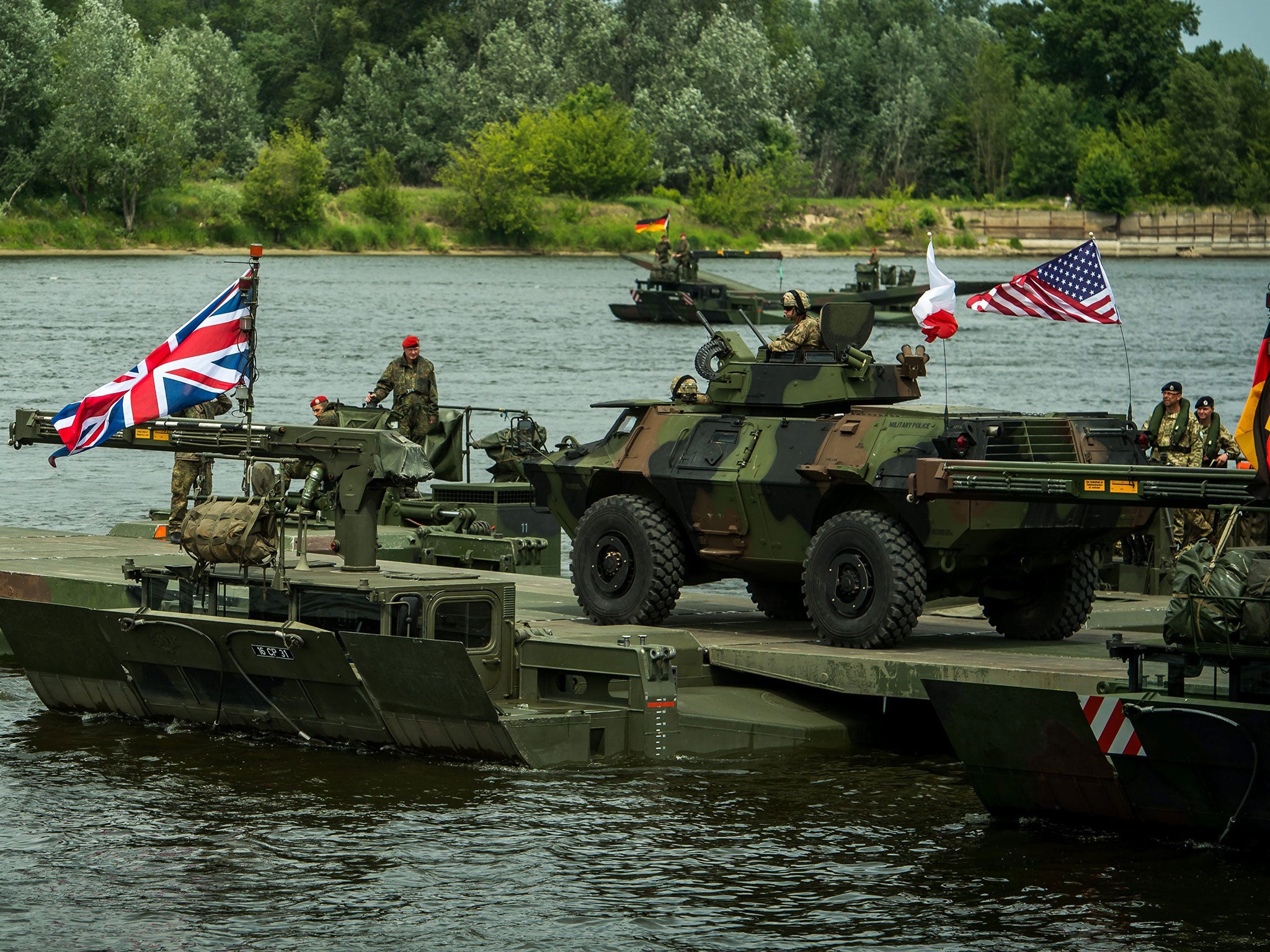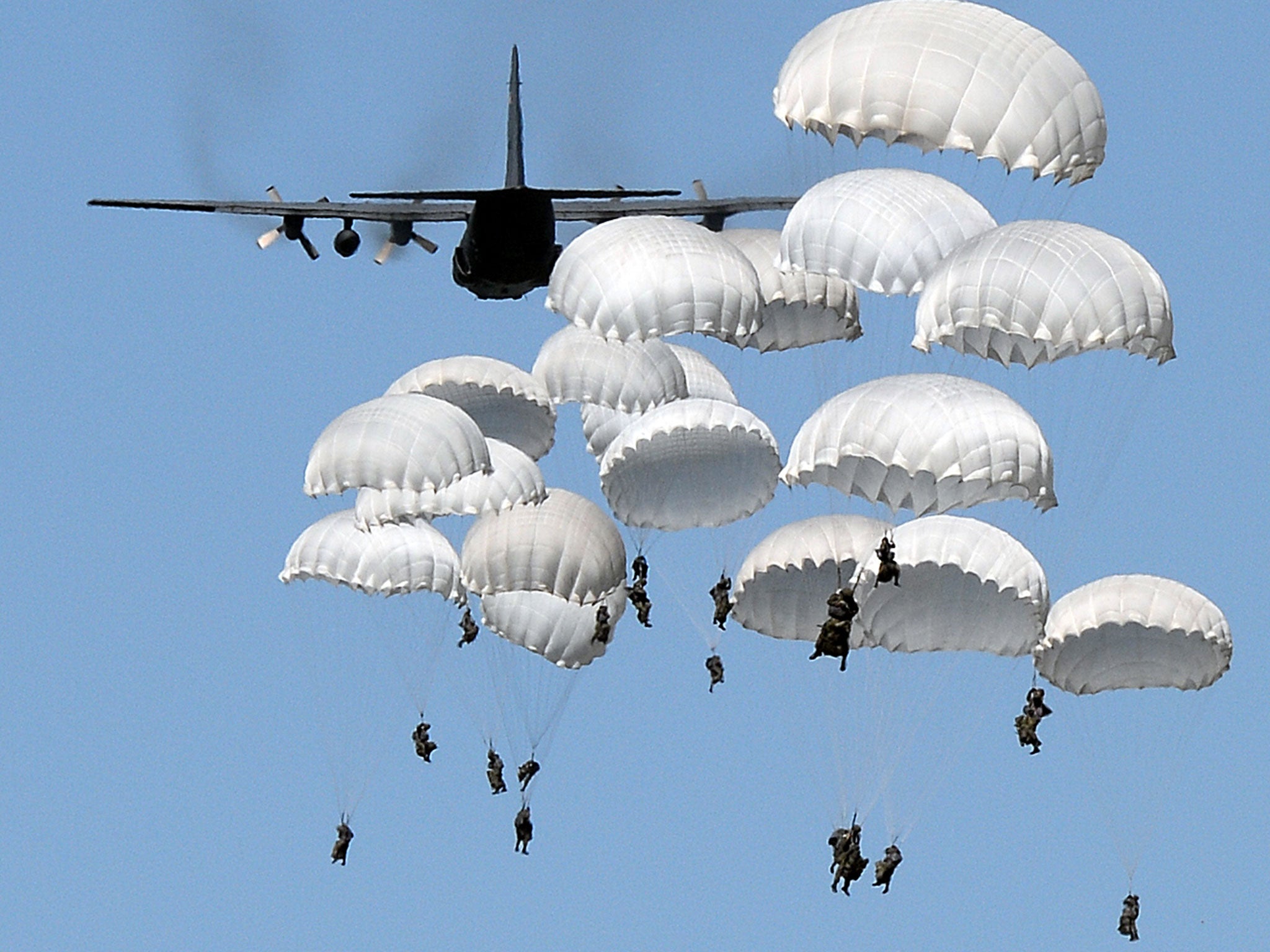German foreign minister accuses Nato of 'warmongering' with military exercises that could worsen tensions with Russia
Frank-Walter Steinmeier urged the military alliance to prioritise diplomacy

Your support helps us to tell the story
From reproductive rights to climate change to Big Tech, The Independent is on the ground when the story is developing. Whether it's investigating the financials of Elon Musk's pro-Trump PAC or producing our latest documentary, 'The A Word', which shines a light on the American women fighting for reproductive rights, we know how important it is to parse out the facts from the messaging.
At such a critical moment in US history, we need reporters on the ground. Your donation allows us to keep sending journalists to speak to both sides of the story.
The Independent is trusted by Americans across the entire political spectrum. And unlike many other quality news outlets, we choose not to lock Americans out of our reporting and analysis with paywalls. We believe quality journalism should be available to everyone, paid for by those who can afford it.
Your support makes all the difference.The German foreign minister has accused Nato of “warmongering” with exercises in Eastern Europe that could worsen tensions with Russia.
Frank-Walter Steinmeier warned that extensive military drill and deployment could worsen rather than improve regional security.
"What we should not do now is inflame the situation with sabre-rattling and warmongering,” he told the Bild am Sonntag newspaper.
"Whoever believes that a symbolic tank parade on the alliance's eastern border will bring security is mistaken.
"We are well-advised not to create pretexts to renew an old confrontation.”
Nato is currently staging a simulated attack on Poland involving more than 30,000 troops and has announced the “strengthening” of defences in Ukraine, while sending battalions to two of Russia’s neighbours.
Large-scale military drills, which take place every two years, are intended to test the alliance’s ability to respond to threats.
About 12,000 Polish and 14,000 US troops are taking part in exercises code named Anaconda-16 that started earlier this month, as well as 1,000 from the UK and others from Nato states and five other nations.

The drills feature fighter jets, warships and thousands of tanks and armoured vehicles.
Tensions between Nato and Russia remain high over the continuing conflict in eastern Ukraine, which was awarded increased funding and assistance this week.
Jens Stoltenberg, the alliance’s Secretary General, called on Russia to “stop supporting the militants and withdraw its forces from Ukrainian territory” – two allegations that the Kremlin denies.
Nato defence ministers also agreed to “strengthen defence and deterrence” on Tuesday by announcing the deployment of four multinational battalions to Estonia, Latvia, Lithuania and Poland.
Russia has repeatedly said it considers Nato troops close to its borders to be a threat to its security.
“For some reason, Nato infrastructure must constantly be expanded and moved closer to the Russian borders,” Vladimir Putin told a forum in St Petersburg on Friday.
“If we continue following such logic, act to escalate and intensify efforts to scare each other, then one day we may come to a Cold War.
“We (Russia) have a completely different logic, it is aimed at cooperation and search for compromise.”
Mr Steinmeier urged the military alliance to turn to dialogue and partnership, as well as building the case for disarmament, as Nato and Russia face joint threats in the Middle East.
Join our commenting forum
Join thought-provoking conversations, follow other Independent readers and see their replies
Comments